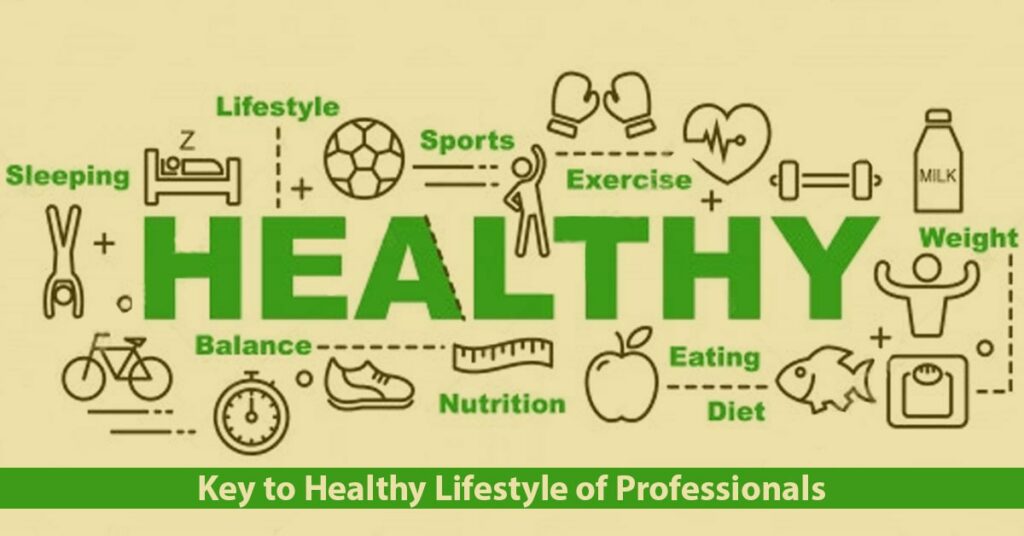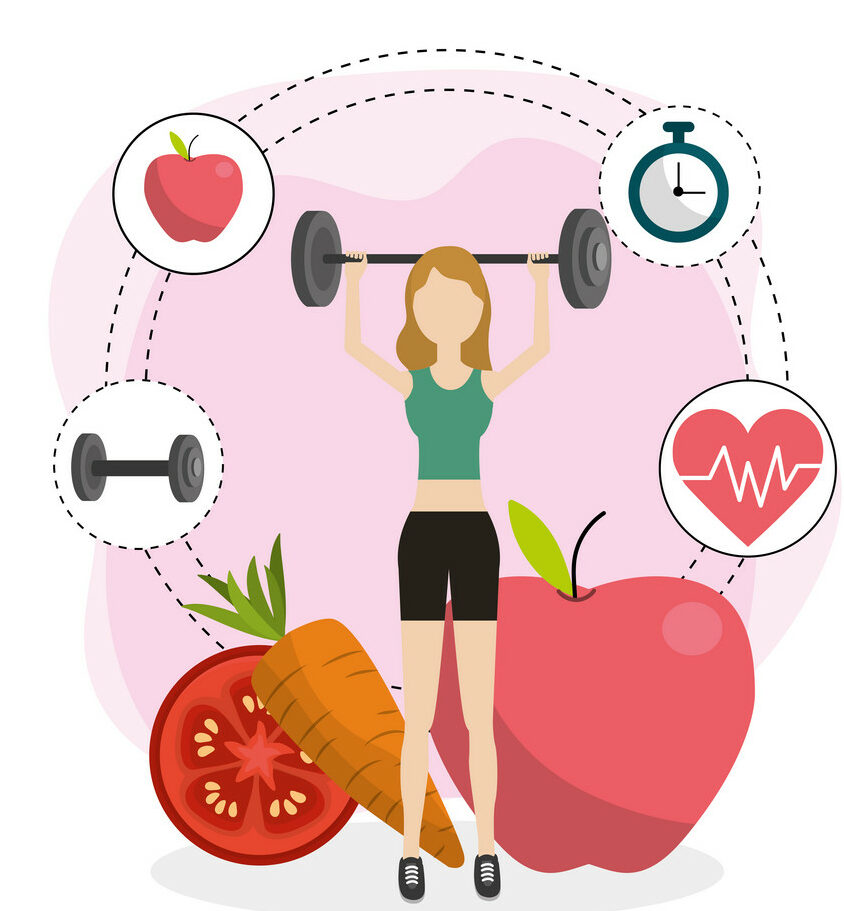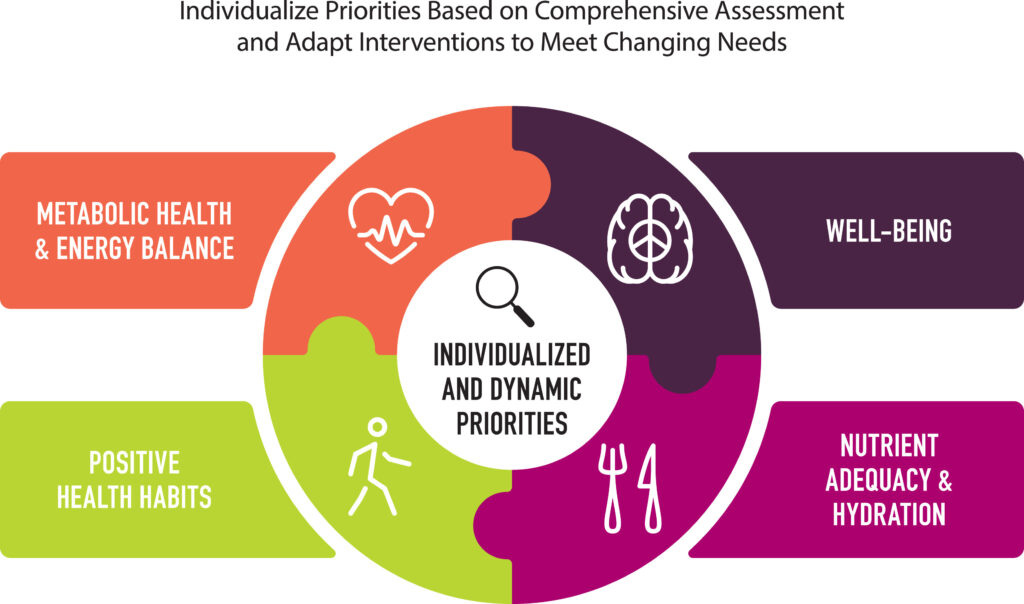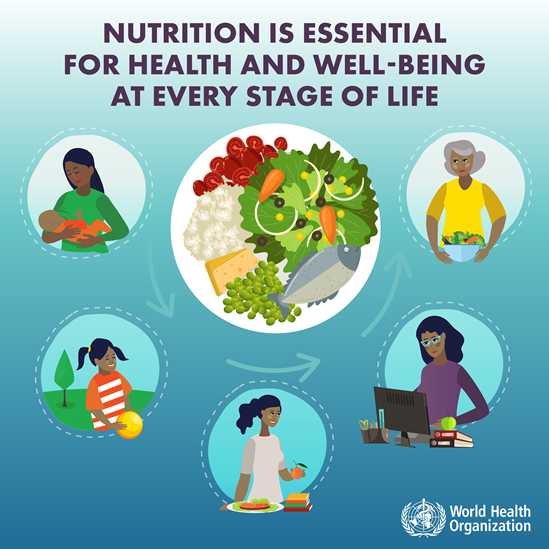
Why Nutrition Matters for Active Living
Nutrition plays a crucial role in providing the necessary energy and nutrients for physical activity. Whether you’re a competitive athlete, doing weekend activities, or someone looking to maintain an active lifestyle, what you eat directly affects your performance and overall well-being. Proper nutrition ensures that the body has enough carbohydrates for energy, protein for muscle repair, and essential vitamins and minerals for optimal function. This is supported by the Better Health Channel, which emphasizes that a well-planned diet provides the necessary nutrients to enhance sporting performance and well-being.
Beyond the physical benefits, nutrition significantly impacts mental well-being. Aetna discusses how both the brain and gut can affect mood, emphasizing the importance of vital nutrients in supporting mental health.A well-balanced diet can improve mood, reduce stress, and enhance cognitive function, all of which contribute to maintaining an active and fulfilling lifestyle.

Why This Topic Matters to Our Group
When it comes to maintaining an active and healthy lifestyle, nutrition is a fundamental pillar that often gets overlooked. For our Health Competency Seminar, our group has chosen to focus on nutrition and its impact on active living. This topic is especially relevant as it directly ties into key themes of Active Health
Physical literacy: Physical literacy refers to the knowledge and skills necessary to move efficiently and confidently. A well-balanced diet supports coordination, endurance, and strength, enabling individuals to engage in physical activities with greater ease. According to Johns Hopkins Medicine, individuals should consume a balanced diet consisting of about 60% carbohydrates, 20% protein, and 20% fat to optimize performance and maintain physical health. Teaching athletes and active individuals about proper nutrition empowers them to fuel their bodies correctly, leading to better performance and injury prevention.
Healthy and Active living: Maintaining an active lifestyle requires a diet that promotes long-term health. Whole foods rich in nutrients contribute to sustained energy levels, muscle recovery, and disease prevention. A well-planned diet tailored to different activity levels whether for professional athletes or recreational exercisers helps optimize fitness goals while reducing the risks of obesity, heart disease, and other health issues.
Mental well-being: The food we eat has a significant impact on our mental health. The gut-brain connection highlights how certain nutrients, such as omega-3 fatty acids, probiotics, and antioxidants, influence mood and cognitive function. A diet rich in whole foods can help reduce stress, improve focus, and prevent mental fatigue, ultimately supporting both physical and mental resilience.
By understanding how proper nutrition fuels the body, enhances performance, and supports brain health, our peers can make informed choices that contribute to a balanced and active lifestyle.
The Role of Nutrition in Physical and Health Education (PHE)

Within PHE, students engage in various physical activities that demand proper fueling and recovery strategies. Whether participating in sports, recreational exercise, or daily movement, nutrition plays a critical role in sustaining energy levels, endurance, strength, and cognitive function. A well-balanced diet provides the body with:
- Carbohydrates for sustained energy and performance.
- Protein for muscle repair and recovery.
- Healthy fats for long-term energy and joint health.
- Vitamins and minerals to support immune function and overall well-being.
- Hydration to maintain optimal physical and cognitive function.
Beyond physical benefits, nutrition significantly impacts mental well-being, a key focus in PHE. Proper nutrient intake supports brain health, improves concentration, and helps manage stress, which in turn enhances motivation and engagement in physical activities

Incorporating Cultural and Dietary Diversity
Nutrition is not one-size-fits-all. Different cultures and dietary preferences offer various approaches to fueling an active lifestyle. For instance:
- Mediterranean diets, rich in whole grains, healthy fats, and lean proteins, are known for supporting heart health and sustained energy.
- Plant-based diets provide essential nutrients through legumes, nuts, seeds, and whole grains while emphasizing sustainability.
- Traditional Asian diets, with balanced portions of rice, vegetables, and lean proteins, support long-term energy and digestive health.
- Indigenous diets, often high in natural, unprocessed foods, emphasize nutrient-dense staples such as fish, root vegetables, and berries.
By acknowledging different dietary patterns, we ensure our discussion is inclusive and applicable to a diverse audience, helping everyone find a nutritional approach that aligns with their cultural background and personal values.
Engaging Our Peers: A Hands-On Learning Experience
To ensure our seminar is both educational and interactive, we will incorporate some of these activities that encourage critical thinking and practical application. Our session may include:
- Myth vs. Fact Nutrition Quiz: This activity will debunk common misconceptions, such as whether protein is only for bodybuilders or if skipping meals leads to weight loss.
- Build Your Ideal Athlete’s Plate: Groups will create meal plans tailored to different activity levels, highlighting the importance of nutrient balance.
- Hydration Challenge: A fun and interactive way to stress the importance of staying hydrated for peak performance. We can do a demonstartion measuring out how much water a healthy individual should be drinking in a day.
- Group Discussion: Peers will share their experiences with nutrition and active living, exchanging tips and strategies for maintaining a healthy diet.
Balancing Education with Participation

Our seminar aims to provide a balanced approach between theoretical knowledge and real-world application. By integrating informative content with engaging activities, we will ensure that our peers gain practical takeaways they can apply in their own lives.
Bridging Nutrition with PHE Goals
By aligning our seminar with the goals of Physical and Health Education, we emphasize that nutrition is not just about eating well it’s about fueling an active lifestyle and fostering long-term well-being. This discussion goes beyond food choices and explores how social, cultural, and behavioral factors influence eating habits and how these choices impact physical performance and mental health. We aim to raise aweness around brain and body health and how it is highly affted by the food we eat.
Looking Forward to an Interactive Learning Experience
We are excited to create a seminar that empowers students to make informed nutrition choices, leading to enhanced physical literacy, improved performance, and better overall health. As we prepare for this engaging session, we encourage our peers to reflect on their current nutrition habits. What small changes can you make to improve your energy levels, recovery, and overall well-being? Join us in discovering how proper nutrition can elevate your active lifestyle in meaningful ways!
Leave a Reply